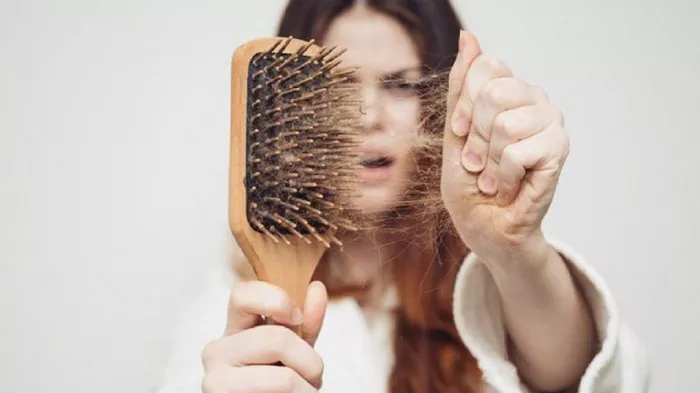Hair loss is a concern that affects millions of people worldwide, and it can be attributed to various factors, including genetics, hormonal changes, and certain medications. Statins, a class of drugs commonly prescribed to lower cholesterol levels, have been associated with hair loss in some cases. If you’re experiencing hair loss while taking statins, you may be wondering whether your hair will grow back after stopping the medication. In this article, we will explore the connection between statins and hair loss, as well as the potential for regrowth after discontinuation.
The Link Between Statins and Hair Loss: Understanding the Mechanism
Statins work by inhibiting an enzyme called HMG-CoA reductase, which plays a crucial role in cholesterol production. While these medications are effective in reducing cholesterol levels and preventing cardiovascular events, some users have reported side effects, including hair loss. The exact mechanism by which statins may contribute to hair loss is not fully understood, but it is believed to involve disruptions in the normal cycle of hair growth.
Hair growth occurs in cycles, consisting of anagen (growth phase), catagen (transitional phase), and telogen (resting phase). Any factor that disrupts this cycle can lead to hair loss. Some researchers propose that statins may interfere with the production of certain hormones or nutrients essential for hair growth, potentially leading to hair thinning or shedding.
The Role of Genetics and Individual Variability
It’s important to note that not everyone who takes statins will experience hair loss, and the severity of this side effect can vary among individuals. Genetics play a significant role in determining how individuals respond to medications, and some people may be more predisposed to developing certain side effects, including hair loss, while taking statins.
If you’re experiencing hair loss while on statins, it’s crucial to consult with your healthcare provider. They can help assess whether the hair loss is indeed related to the medication or if other factors may be contributing to the issue.
Discontinuing Statins: Will Hair Grow Back?
The good news is that for many people, hair loss related to statin use is reversible once the medication is discontinued. However, the timeline for regrowth can vary from person to person. Some individuals may notice improvements in hair thickness and volume within a few weeks to months after stopping statins, while others may take a bit longer.
It’s important to follow your healthcare provider’s guidance when considering discontinuation of any medication, including statins. Abruptly stopping statins without medical supervision can have adverse effects on your cholesterol levels and overall cardiovascular health. Your healthcare provider may explore alternative cholesterol-lowering medications or adjust your treatment plan based on your individual needs.
Promoting Hair Regrowth: Additional Considerations
While discontinuing statins may help address medication-induced hair loss, there are additional steps you can take to promote hair regrowth and maintain overall hair health:
Nutrition: Ensure you have a well-balanced diet that includes essential nutrients for hair health, such as vitamins A, C, D, and E, as well as biotin and iron.
Scalp Care: Keep your scalp clean and healthy by using a mild shampoo and avoiding excessive heat styling or chemical treatments that can damage hair.
Lifestyle Factors: Manage stress levels, as chronic stress can contribute to hair loss. Incorporate stress-reducing activities such as meditation, yoga, or regular exercise into your routine.
Topical Treatments: Some individuals may benefit from using topical treatments containing minoxidil or other hair growth-promoting ingredients. Consult with your healthcare provider before using any new products.
See Also: Will Hair Grow Back After Chemotherapy: A Full Guide
In conclusion
Hair loss associated with statin use is a potential side effect that varies among individuals. While discontinuing statins may lead to hair regrowth for many, it’s essential to work closely with your healthcare provider to ensure a safe and effective transition. Additionally, adopting a holistic approach to hair health, including proper nutrition and lifestyle habits, can contribute to the overall well-being of your hair.


